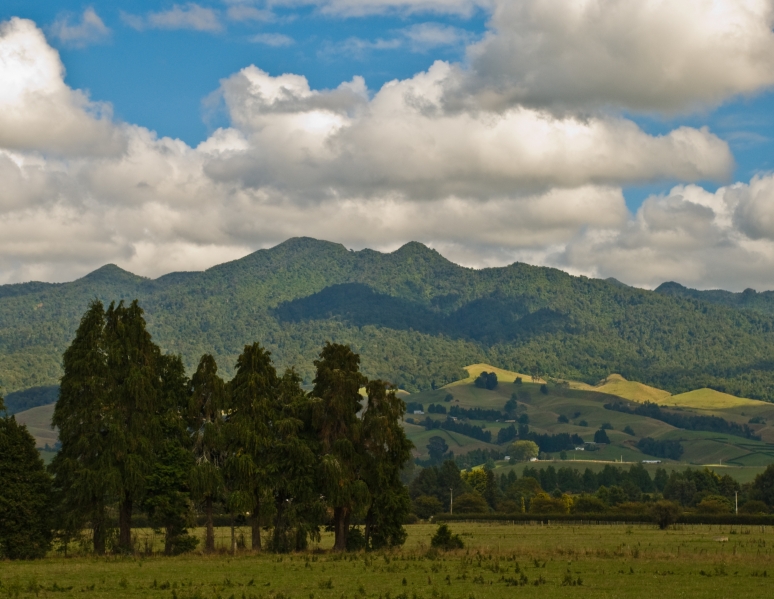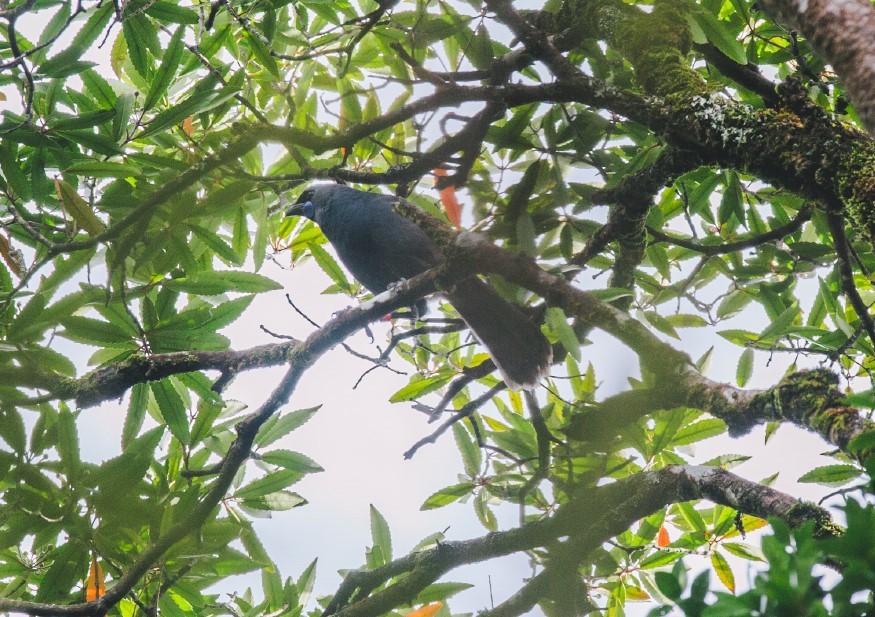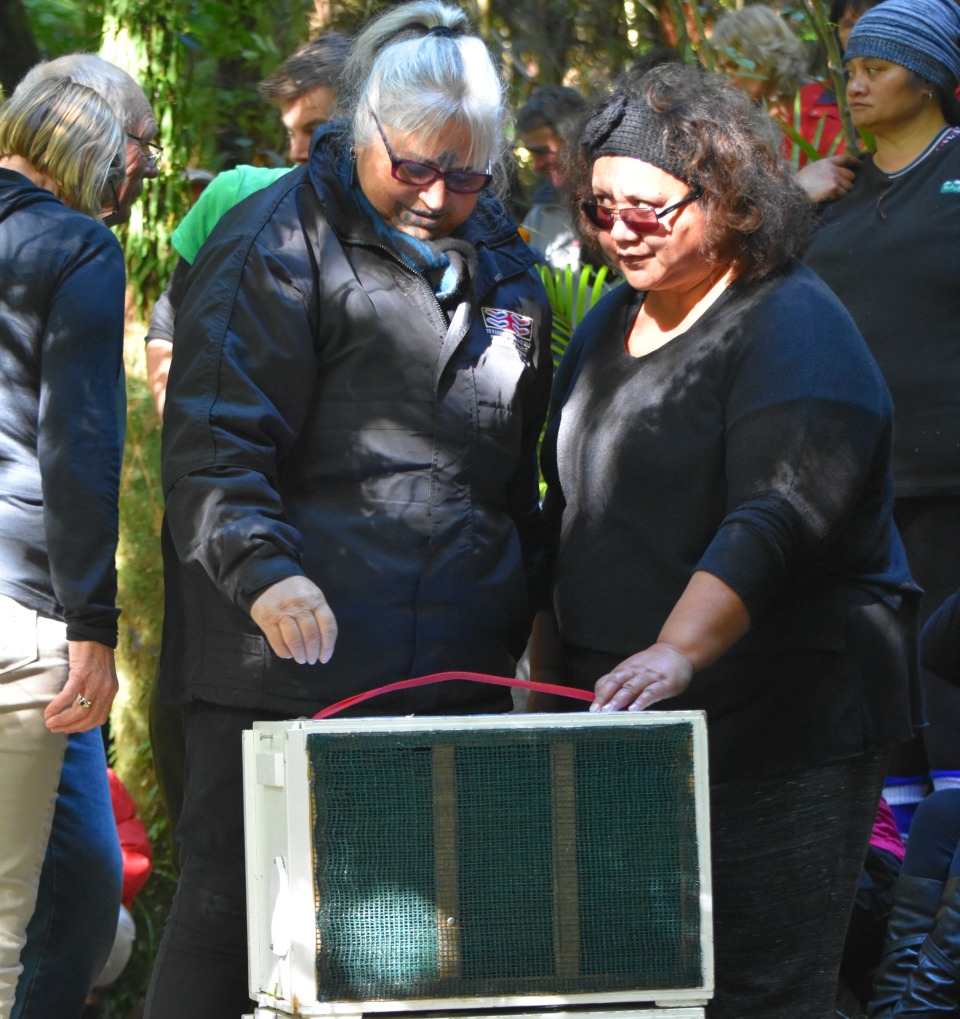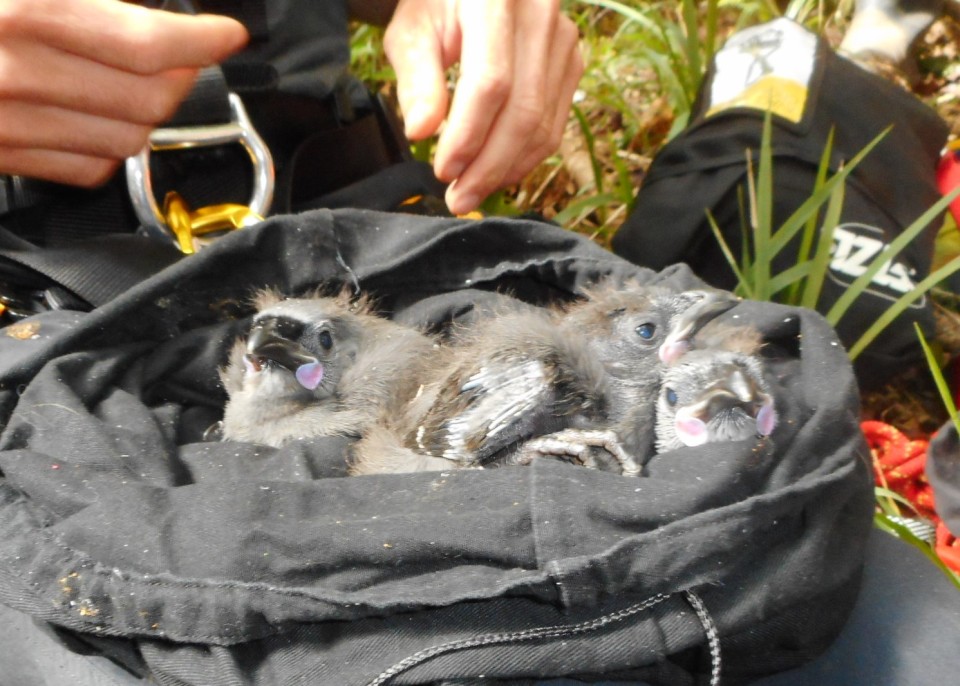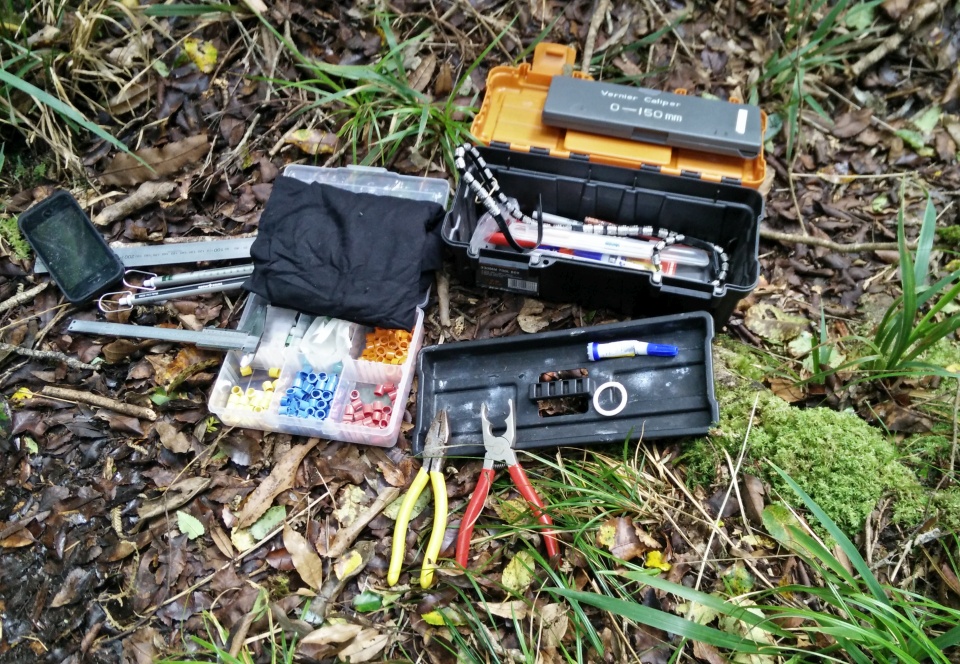Pirongia Mountain is the largest area of native forest in the Waikato Basin and is of high value due to the variety of plant and animal habitat it provides.
Since Europeans came to Aotearoa New Zealand the numbers of native birds and insects has dropped because forests were cut down and animal pests were brought into the country.
Kōkako were once common on Mount Pirongia. But with so many pests on the mountain, the last birds were removed in the 1990s for their own survival.
Restoring life to the maunga
The Pirongia Te Aroaro o Kahu Restoration Society is working on bringing life back to the maunga by restoring kōkako and other key native species to Mt Pirongia. The society is working on controlling pests and bringing native species back. This work is ongoing and relies on lots of people working together.
The society was formed in 2002.
Life on Mount Pirongia
As you climb Mt Pirongia you will notice the forest changes as you get higher. There are two broad forest types. The lower slopes of the mountain are covered in podocarp/broadleaved forest with some rimu and rata over a canopy which has mostly tawa.
As you gain height this forest is replaced by hardy upland trees and shrubs.
It is this variety of plants that supports a wide variety of animals.
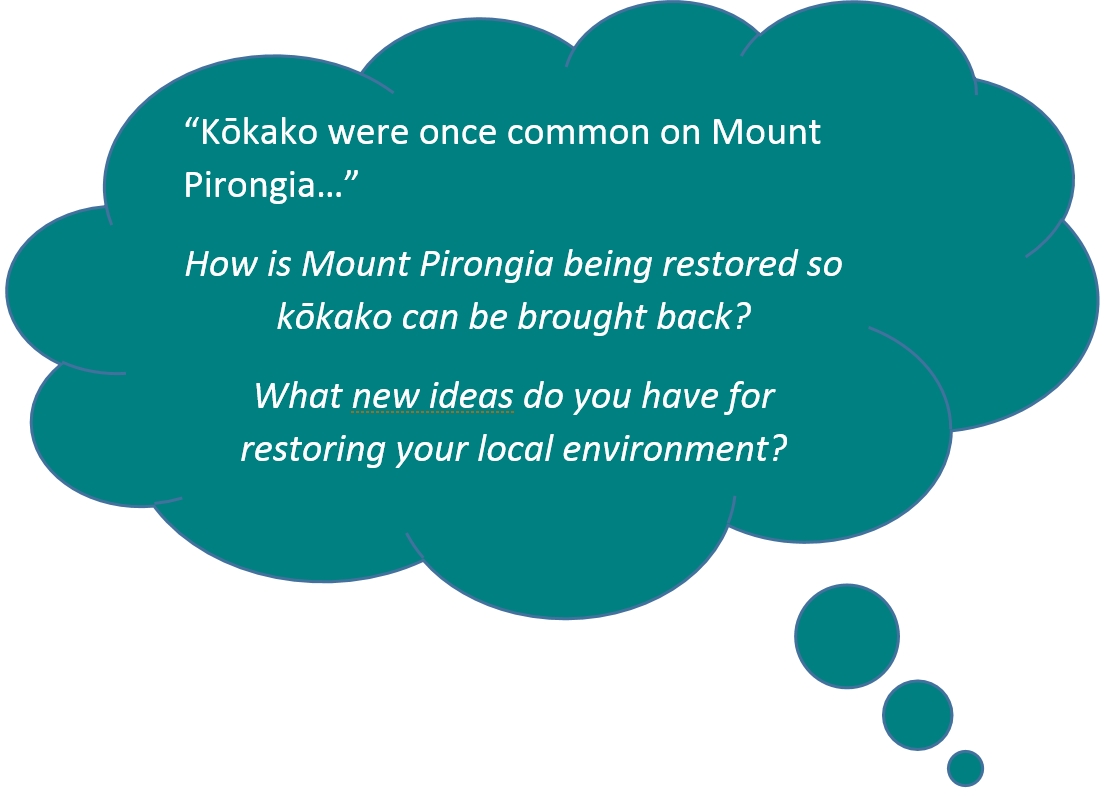 Mount Pirongia is home to a great variety of animals:
Mount Pirongia is home to a great variety of animals:
- native and introduced birds
- small lizards
- eels
- bullies (freshwater fish)
- trout and crayfish.
To restore Mount Pirongia the society has needed the help of iwi, local people and businesses.
Community volunteers set up bait stations over the spring to protect nesting birds from rats and possums. Other work includes:
- trapping
- removing weeds
- monitoring birds and predators
After 20 years of hard work
With a lot of hard work and many different groups working together predator numbers on Mount Pirongia are now low enough to reintroduce birds like kōkako. Rat populations are now below the 5-3% which protects birds from predation.
The dream of hearing the call of the kōkako on Mt Pirongia once again is now close to coming true. The first kōkako release took place in June 2017.
On this field trip you will help locate kōkako in Pureora Forest with the goal of safely capturing some birds to transport to Mount Pirongia where they can bring bird song back to the maunga.
Complete the Mount Pirongia restoration quiz >

